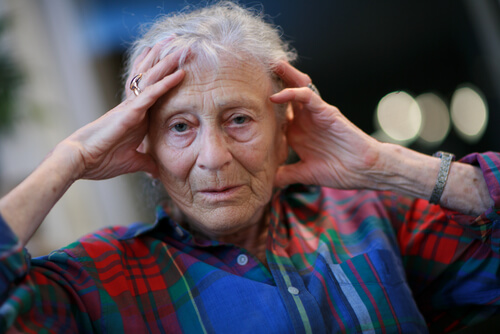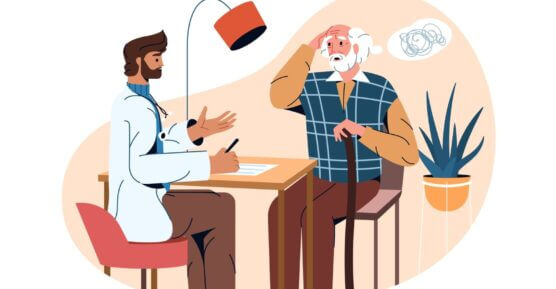
Korsakoff’s syndrome is a form of brain damage that is usually caused by excessive alcohol consumption.
It carries very similar symptoms to dementia, but unlike dementia, it can be possible to make a full recovery.
Often called Wernicke-Korsakoff’s syndrome, the illness begins with Wernicke’s encephalopathy which later develops into Korsakoff’s syndrome if left untreated.
Causes of Wernicke-Korsakoff’s syndrome
The most common cause of Wernicke-Korsakoff’s syndrome is alcohol. One of the vitamins the body needs to function properly is Vitamin B1, also known as thiamine. We can get thiamine through peas, beans, nuts, seeds, eggs, tofu, seafood and some meat, as well as vegetables like cauliflower, asparagus, kale and squash. Thiamine is essential for the healthy function of the brain and nervous system.
Alcohol compromises the body’s ability to absorb thiamine. Chronic alcohol abuse can lead to thiamine deficiency, which in turn can cause beriberi as the brain and body are starved of the vitamin. Wernicke-Korsakoff syndrome is a form of dry beriberi. Thiamine deficiency can also lead to lactic acidosis.
Far more rarely, an extreme deficiency in thiamine can be caused by malnutrition, either because the person has a poor diet or because they intentionally fast. Wernicke-Korsakoff’s syndrome has been known to occur in people with eating disorders such as anorexia nervosa. It has also been seen in people with other diseases that can cause them to become malnourished, including Crohn’s disease, cancer and AIDS.
Symptoms of Wernicke-Korsakoff’s syndrome
The person will usually develop symptoms of Wernicke’s encephalopathy then gradually start to show symptoms of Korsakoff’s syndrome if they do not get treatment. How long this takes depends on the individual and the cause of their Wernicke-Korsakoff’s syndrome, such as how heavily they are drinking.
Wernicke’s encephalopathy
- Changes in mental state, including becoming confused and poor memory
- Ocular signs, such as double vision or abnormal eye movements
- Ataxia, illness of the nervous system whose symptoms can make it appear like the person is drunk. They can include slurred speech, stumbling and poor coordination
Korsakoff’s syndrome
- More severe memory problems, particularly in understanding and remembering new information
- Confabulation, when they have false memories that they really believe are true
- Visual or auditory hallucinations
- Apathy
- Becoming repetitive in their actions and particularly in what they say. They may repeat the same stories on a loop
- Difficulty with making decisions and day to day planning. They may find the smallest task (like buying a birthday card for example) very stressful and confusing, and spend days obsessing over it
Treatments for Wernicke-Korsakoff’s syndrome
If left untreated, Wernicke-Korsakoff’s syndrome can drastically reduce a person’s quality of life and even be fatal. However, it can be possible to reduce symptoms or even completely recover, particularly if the person is still in the stages of Wernicke’s encephalopathy and has not yet progressed to Korsakoff’s syndrome. Around a quarter of people make a full recovery, while half manage to improve their symptoms.
Treatments include:
Getting thiamine levels up to a normal level
Supplying the person with proper levels of thiamine can often be an effective treatment. This can be done intravenously via an IV drip that delivers thiamine, followed by glucose.
Supplements can also be effective if the person is able to absorb the vitamin from them.
Treating the underlying cause
If the person is not absorbing thiamine because of alcoholism or an eating disorder, getting treatment for these can help dramatically. Sobriety and proper nutrition can enable the body to absorb and use thiamine once again.
Neurorehabilitation
As it is a form of brain injury, sometimes people receive neurorehabilitation treatment for Korsakoff’s syndrome. This includes cognitive, behavioural, physical, emotional, social and communication treatments, and can be either in hospital or at home.
Find your ideal care home
- Explore a wide range of care options and facilities
- Read independent ratings and reviews
- Connect directly with care homes to book a tour and discuss your needs


